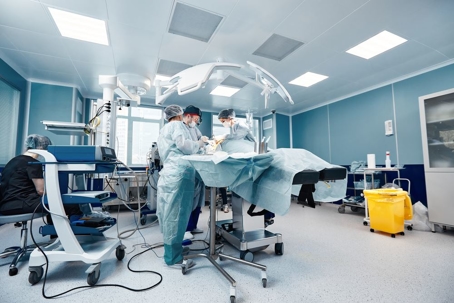Heater-cooler devices – also called cardiac heater-coolers – have been linked to some potentially fatal complications when they are used and maintained incorrectly. The most dangerous complication that can occur is exposure to Mycobacterium chimaera which can cause a life-threatening infection. If you have undergone open-heart surgery that used a heater-cooler device, then you will probably have a lot of questions about this device, what it is, and what it can do. We hope to answer some of your questions here.
Heater-Cooler Device FAQ
- What is a heater-cooler device?
A heater-cooler device is commonly used in cardiovascular and respiratory surgeries. These surgeries are considered open-heart or open-chest surgeries. The device uses closed water circuits to either warm or cool the patient during the procedure. - Can any water be used in a heater-cooler device?
No, hospitals should only use sterilized and filtered water in a heater-cooler water tank. Ice placed within the machine should also come from frozen water that has been sterilized and filtered first. Adding tap water or otherwise unsterilized water can dramatically increase the patient’s risk of M. chimaera exposure. - Does water come into contact with patients while the heater-cooler device is being used?
Water within a heater-cooler device does not directly contact the patient. Misuse or poor maintenance of the machine could cause water to leak into other compartments of it, where it aerosolizes. The aerosolization of contaminated water is the most likely cause of this infection. - How often should medical staff clean a heater-cooler device?
Maintenance instructions for heater-cooler devices of various makes and models usually instruct medical staff members to clean and sanitize the device before and after each use. Failing to properly maintain a heater-cooler device could constitute a form of medical malpractice called hospital negligence if a patient develops this type of infection. - Are all heater-cooler devices contaminated?
Research has shown that heater-cooler devices can become contaminated during the manufacturing process. If a hospital gets a brand-new heater-cooler device and uses it without sterilizing it first, then the patient could be exposed to M. chimaera. Heater-cooler devices can aerosolize the bacteria if the hospital does not perform cleaning procedures and equipment upgrades as recommended by the manufacturer. - Will a hospital tell you if a contaminated heater-cooler device was used in your surgery?
Hospitals should make an effort to contact all cardiac surgery patients who might have been exposed using a contaminated heater-cooler device. Hospitals should inform patients undergoing these types of procedures about the potential risk of exposure. If you have any worries, you can reach out to the hospital directly. Infections can take months or a year to show symptoms, so it is worth inquiring if you are concerned.
If you have questions about how heater-cooler devices could have exposed you to unsafe bacteria during open-heart surgery, then please reach out to Shamberg, Johnson & Bergman, CHTD in Kansas City. We are currently hearing from clients who might have valid medical malpractice claims or lawsuits. Call (816) 542-5999 now.
Useful Resources
- “What is a Heater-Cooler Device?” – Food and Drug Administration (FDA)
- “UPDATE: Potential Risk of Infection When Using Heater-Cooler Devices – Letter to Health Care Providers” – FDA

